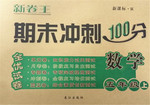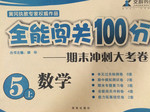题目内容
People do not analyze every problem they meet.Sometimes they try to remember a solution from the last time they had a 36 problem.They often accept the opinions or ideas of other people.Other times they begin to act without thinking; they try to find a solution by trial and error. 37 , when all of these methods fail, the person with a problem has to start analyzing.There are six 38 in analyzing a problem.
First the person must recognize that there is a problem.For example, Sam's bicycle is broken, and he cannot ride it to class as he usually does.Sam must 39 that there is a problem with his bicycle.
Next the person must 40 the problem.Before Sam can repair his bicycle, he must know why it does not work.For example, he must 41 the parts that are wrong.
Now the person must look for 42 that will make the problem clearer and lead to 43 solutions.For example, suppose Sam decides that his bike does not work because there is something wrong with the brakes. 44 , he can look in his bicycle repair book and read about brakes, 45 his friends at the bike shop, or look at his brakes carefully.
After 46 the problem, the person should have 47 suggestions for a possible solution.Take Sam as an example 48 , his suggestions might be: tighten or loosen the brakes; buy new brakes and change the old ones.
In the end, one 49 seems to be the solution to the problem.Sometimes the 50 idea comes quite 51 because the thinker suddenly sees something new or sees something in a 52 way.Sam, for example, suddenly sees there is a piece of chewing gum(口香糖)stuck to a brake.He 53 hits on the solution to his problem: he must 54 the brake.
Finally the solution is 55 .Sam does it and finds his bicycle works perfectly.In short, he has solved the problem.
| 【小题1】 |
|
| 【小题2】 |
|
| 【小题3】 |
|
| 【小题4】 |
|
| 【小题5】 |
|
| 【小题6】 |
|
| 【小题7】 |
|
| 【小题8】 |
|
| 【小题9】 |
|
| 【小题10】 |
|
| 【小题11】 |
|
| 【小题12】 |
|
| 【小题13】 |
|
| 【小题14】 |
|
| 【小题15】 |
|
| 【小题16】 |
|
| 【小题17】 |
|
| 【小题18】 |
|
| 【小题19】 |
|
| 【小题20】 |
|
【小题1】C
【小题2】D
【小题3】C
【小题4】D
【小题5】A
【小题6】A
【小题7】D
【小题8】B
【小题9】D
【小题10】A
【小题11】D
【小题12】C
【小题13】A
【小题14】B
【小题15】C
【小题16】 B
【小题17】A
【小题18】D
【小题19】B
【小题20】C
解析试题分析:本文讲的是一般情况下人们的思维方式很少有人分析他们所遇到的问题而是试图记住问题的答案,进而举例说明解决问题的过程首先要认识到有问题接下来对问题进行归类而且对问题进行研究、找出问题产生的原因。解决问题的过程也可以向别人咨询一切为了学生的发展一切为了家长的心愿找出问题的解决办法。
【小题1】考查形容词:A.usual平常的,B. serious严肃的C.similar相似的D.common共同的,有时人们从上次类似问题的解决方法中寻找答案。答案:C
【小题2】考查副词:A. Instead相反的B.Besides此外C.Otherwise否则D.However然而,句意:然而,当所有现成的、不动脑筋的方法解决不了问题的时候,人们不得不开始分析这个问题。答案:D。
【小题3】考查A.conditions条件B. ways方法C.stages阶段D.orders命令,从后面各段可以得知分析问题有六个步骤。答案:C
【小题4】考查动词:A.prove证明B. explain解释C.show展示D.see看见,首先,Sam一定要看出单车有问题。答案:D
【小题5】考查动词:A.find发现B. judge判断C.describe描述D.face面对,第二步是找出问题。其他选项和后面所举例子不符。选A.
【小题6】考查动词:A.determine决定B. check检查C.correct纠正D.recover恢复,判定是哪些零件出了问题。check是“检查”的意思,问题还没查出来,当然就谈不上“检查出错的零件”了。所以B不妥。答案:A
【小题7】考查名词:A.skills技能B. answers回答C.explanation解释D.information信息,从后面所举例子中可以看出,第三步是寻找有关的(解决问题)的信息(如看书,问修车的朋友)。答案:D
【小题8】考查形容词:A.exact确实的B. possible可能的C.real真的D.special特殊的,这些信息可能会导致问题的解决。B、C项过于绝对,D项意义不符。答案:A
【小题9】考查词组:A.Once in a while偶尔B. In other words换句话说C.First of all首先D.At this time这次,这次,他可以看修自行车的书。选D。
【小题10】考查词组:A.talk to谈论B. look for寻找C.agree with同意D.depend on取决于,和自行车商店的朋友谈谈,选A。
【小题11】考查动词和短语:A.settling down定居B. discussing讨论C.comparing with对比,D.studying研究,上面所做的事情属于研究问题范畴,故选D。
【小题12】考查形容词:A.enough足够的,B. extra额外的C.several 几个, D.countless数不清的,第四步是提出数个解决方案。从后面所举例子看,several比较适合。答案:C
【小题13】考查副词:A.again再次B. secondly第二C.also也D.alone孤单,还是拿Sam举例。选A.
【小题14】考查名词:A.conclusion结论B. suggestion建议C.decision决定, D.discovery发现,从前面的his suggestions might be:可知选B。
【小题15】考查形容词:A.clear清晰的B. next下一个C.final最后的D.new新的,这里指最后的解决办法。选C。
【小题16】考查副词:A.late迟的B. unexpectedly预料不到的C.clearly清楚地D.often经常地,从后面的单车刹车上粘了一块口香糖例子中可以看出,有时解决问题的方法实际上很简单,出乎人们意料之外。答案:B。
【小题17】考查形容词:A.different不同的B. simple简单的,C.quick快的D.sudden从不同的角度去看问题。答案:A。
【小题18】考查副词:A.easily容易的B. fortunately幸运的C.clearly清楚的D.immediately立即,因为问题非常简单,Sam马上想出了解决问题的方法。答案:D
【小题19】考查动词:A.separate分离B. clean打扫,清洁C.loosen使变松D.remove去掉,解决问题的办法就是清洁刹车。选B。
【小题20】考查动词:A.completed完成B. recorded记录C.tested 检验D.accepted接受,最后一步是检验解决问题的方案是否可行有效。答案:C
考点:考查日常生活类短文
点评:整个主旨明确,结构清晰,考生不难从中领会大意,从选项中可以看出,本大题主要还是考查了词汇的辨析与运用,但更加注重综合语言能力的运用,需要根据文章大致的结构框架,了解词汇用法的同时,结合语境,做出准确的判断。

 课程达标测试卷闯关100分系列答案
课程达标测试卷闯关100分系列答案 新卷王期末冲刺100分系列答案
新卷王期末冲刺100分系列答案 全能闯关100分系列答案
全能闯关100分系列答案Every country had its heroes. The heroes are the people that nation and especially the young people 21_____ . If you get a list of the 22 _____of a nation, it will tell you the potential (潜力)of the nation.
If today in America ’ you ask the high school students to list their heroes their 23____ would probably divide into three groups. rHie first group of heroes would be the rock stars—the people 24 _____with rock music. There is no doubt that such people do have talent (天才)but one 25_____ if one should hold up rock stars as model. The rock stars too often are mixed with drugs and their personal life isnot all that — 26 ____ . The rock stars are rich and wear the latest fashion styles (时装).However oneshould 27 _____more in a hero than such things as 28______ and fine clothes.
A second type of heroes for the American youth are sports stars. Again you have a person who has a great talent in one area_ 29 _____. However, too often the personal life of the sports star is a bit 30_____. Too frequently drugs and drinking are a part of 31_____ of the sports stars.
A third group of heroes are TV or movie stars. These people may have lots of 32___ ,talent and are quite handsome. However ’ the personal life of too many actors is quite sad and should not be held up as a 33____ for young people.
Today,the rock stars,the sportsmen and the actors 34____ have become the models of the youth in America. Really,do you hear a young person say that his 35____ is a doctor, a teacher or a scientist? These people are not 36____ and do not wear fashionable clothes. However, they are 37____ people who work hard to make the world a better place for everyone.
What is really sad is that the young try to 38____ their heroes. They like to wear the same clothes as theirs, if the heroes of today for the American youth are 39 ____only to rock stars, sportsmen and actors, the future does not look too 40_____ .
|
1. |
2. |
3. |
4. |
A. |
interested |
P. |
connected |
C. excited |
D. |
pleased |
||||||||||||||||||||||||||||||
|
5. |
6. |
7. |
8. |
9. |
10. |
11. |
|
|||||||||||||||||||||||||||||||||
|
12. |
|
|||||||||||||||||||||||||||||||||||||||
|
13. |
|
|||||||||||||||||||||||||||||||||||||||
|
14. |
|
|||||||||||||||||||||||||||||||||||||||
|
15. |
A. |
parent |
B. |
husband |
C wife D. hero |
|||||||||||||||||||||||||||||||||||
|
16. |
|
|||||||||||||||||||||||||||||||||||||||
|
17. |
|
|||||||||||||||||||||||||||||||||||||||
|
18. |
|
|||||||||||||||||||||||||||||||||||||||
|
19.. |
|
|||||||||||||||||||||||||||||||||||||||
|
20. |
|